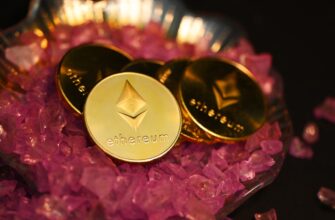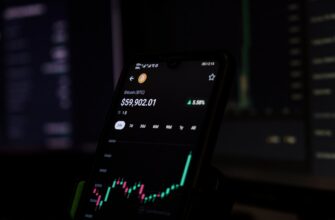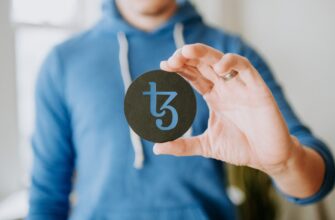## Introduction: The Rising Demand for QA in CryptonnThe cryptocurrency industry is exploding, and with it comes a surge in specialized tech roles—especially **cryptocurrency QA jobs**. As blockchain projects scale from experimental concepts to mainstream financial infrastructure, rigorous quality assurance becomes non-negotiable. QA engineers in crypto don’t just test code; they safeguard billions in digital assets, ensure regulatory compliance, and build trust in decentralized systems. This guide explores how to thrive in this high-stakes, high-reward niche.nn## What Are Cryptocurrency QA Jobs?nnCryptocurrency QA jobs focus on testing blockchain-based software, including exchanges, wallets, smart contracts, and DeFi platforms. Unlike traditional QA, these roles demand expertise in:n- **Blockchain fundamentals**: Understanding consensus mechanisms (PoW, PoS), nodes, and distributed ledgers.n- **Crypto-specific risks**: Testing for vulnerabilities like reentrancy attacks, front-running, or oracle manipulation.n- **Regulatory landscapes**: Ensuring features comply with evolving global standards (e.g., AML/KYC).nn## Why QA Roles Are Critical in CryptonnIn an industry where a single bug can lead to catastrophic losses (like the $600M Poly Network hack), QA engineers are the first line of defense. Their work:n1. **Prevents financial disasters** by identifying security flaws before launch.n2. **Builds user trust** in volatile markets through seamless, reliable experiences.n3. **Accelerates innovation** by enabling rapid, safe deployment of new features.nn## Key Responsibilities of a Cryptocurrency QA EngineernnDaily tasks vary but often include:n- Designing test plans for dApps (decentralized applications) and blockchain protocols.n- Executing functional, security, and performance testing using tools like Truffle or Hardhat.n- Simulating attack vectors (e.g., 51% attacks) and edge-case scenarios.n- Collaborating with devs to reproduce and resolve bugs in smart contracts.n- Documenting compliance with financial regulations.nn## Top 5 Skills for Cryptocurrency QA Professionalsnn### Technical Skillsn- **Blockchain proficiency**: Hands-on experience with Ethereum, Solana, or other major networks.n- **Smart contract testing**: Mastery of tools like MythX or Slither for vulnerability scanning.n- **Automation frameworks**: Selenium, Cypress, or custom scripts for regression testing.nn### Soft Skillsn- **Analytical mindset**: Decoding complex transaction flows and tokenomics.n- **Adaptability**: Keeping pace with lightning-fast industry changes.nn## How to Land a Cryptocurrency QA Job in 2024nn### Step-by-Step Pathn1. **Build foundational knowledge**: Complete courses on platforms like Coursera (e.g., “Blockchain Basics”) or CryptoZombies for smart contracts.n2. **Gain practical experience**: Contribute to open-source crypto projects or create test suites for mock DeFi apps.n3. **Earn certifications**: Consider ISTQB or blockchain-specific credentials like BTA.n4. **Network**: Engage in Web3 communities (Discord, ETHGlobal events) and leverage LinkedIn.nn### Job Search Tipsn- Target crypto-native companies (Coinbase, Chainlink) and fintech firms expanding into blockchain.n- Highlight niche skills in your resume: e.g., “Tested cross-chain swap functionality” or “Audited ERC-20 token contracts.”nn## The Future of QA in CryptonnWith AI integration and quantum computing threats looming, QA roles will evolve:n- **AI-augmented testing**: Machine learning for predictive bug detection.n- **Cross-chain QA**: Expertise in interoperability between networks (e.g., Polkadot, Cosmos).n- **RegTech focus**: Automated compliance checks for MiCA (EU’s Markets in Crypto-Assets regulation).nnIndustry growth is staggering: Blockchain jobs surged 395% from 2020–2023 (LinkedIn data), with QA positions among the most resilient during market downturns.nn## FAQ: Cryptocurrency QA Jobsnn### What qualifications do I need for entry-level crypto QA roles?nA bachelor’s in CS or related field, ISTQB certification, and demonstrable blockchain knowledge (e.g., personal projects). Prior fintech QA experience is a strong plus.nn### Are cryptocurrency QA jobs remote-friendly?nYes! Over 80% of crypto QA roles offer remote or hybrid options due to the industry’s decentralized nature.nn### What’s the salary range for crypto QA engineers?nAccording to Glassdoor:n- Junior roles: $70,000–$90,000n- Senior roles: $120,000–$160,000 + tokens/equitynn### How does crypto QA differ from traditional software QA?nCrypto QA emphasizes security testing, on-chain data validation, and simulating economic attacks—unlike standard web/app testing.nn### Is coding required for cryptocurrency QA jobs?nEssential for mid/senior roles. Python, JavaScript, and Solidity scripting are common for test automation and smart contract reviews.nn## Conclusion: Seize the MomentnnCryptocurrency QA jobs sit at the intersection of cutting-edge tech and financial revolution. With relentless industry growth and escalating security needs, skilled QA professionals wield unprecedented influence—and opportunity. By mastering blockchain-specific testing and staying agile, you can build a future-proof career in this dynamic field. Start upskilling today!








